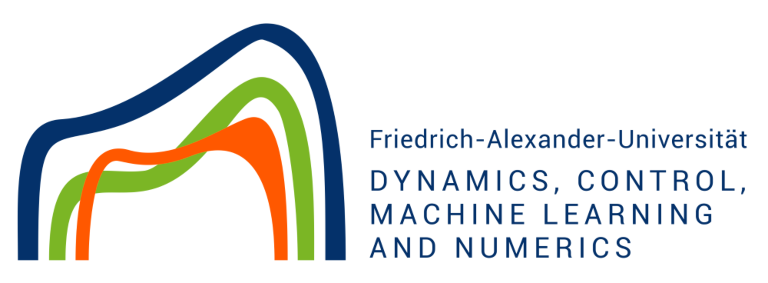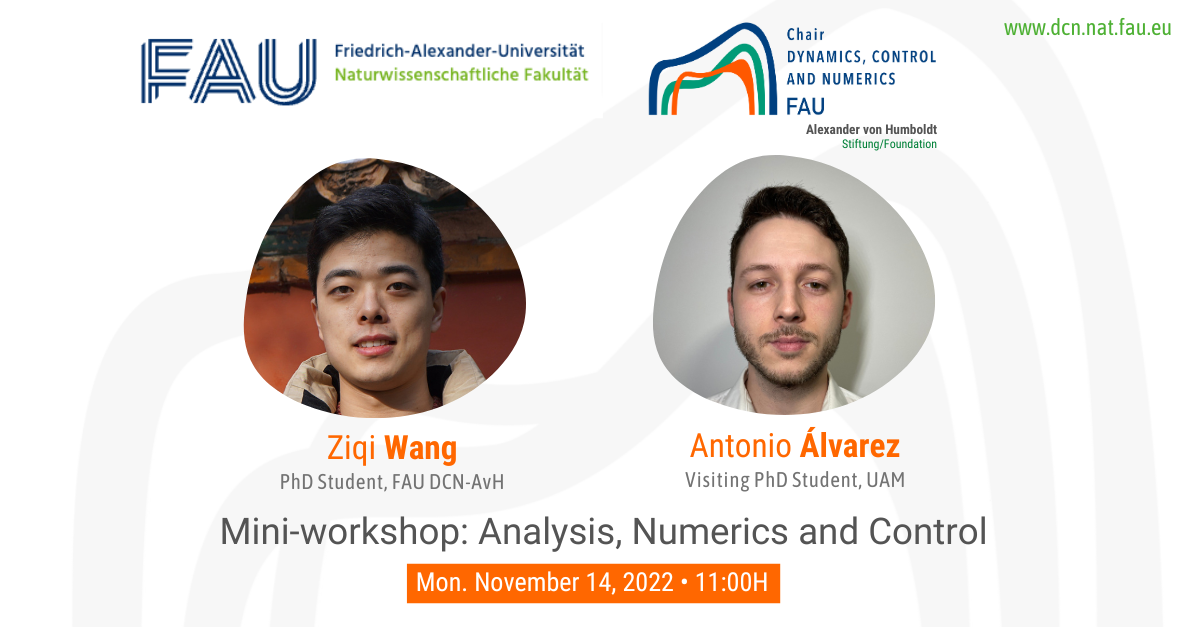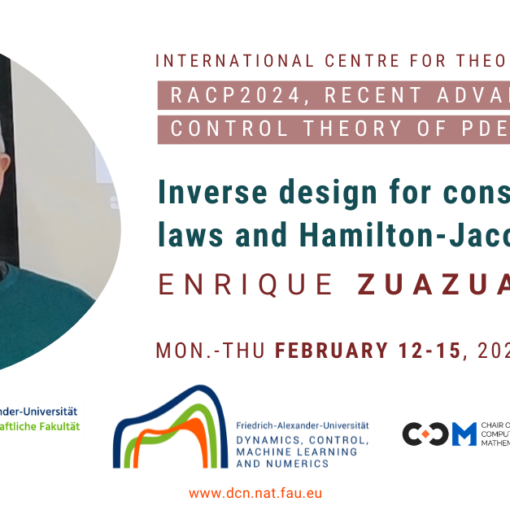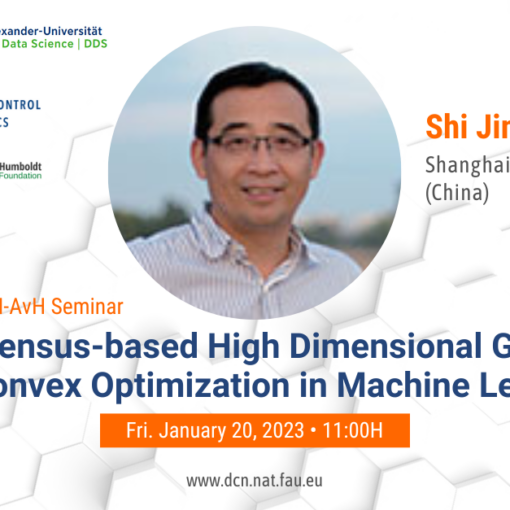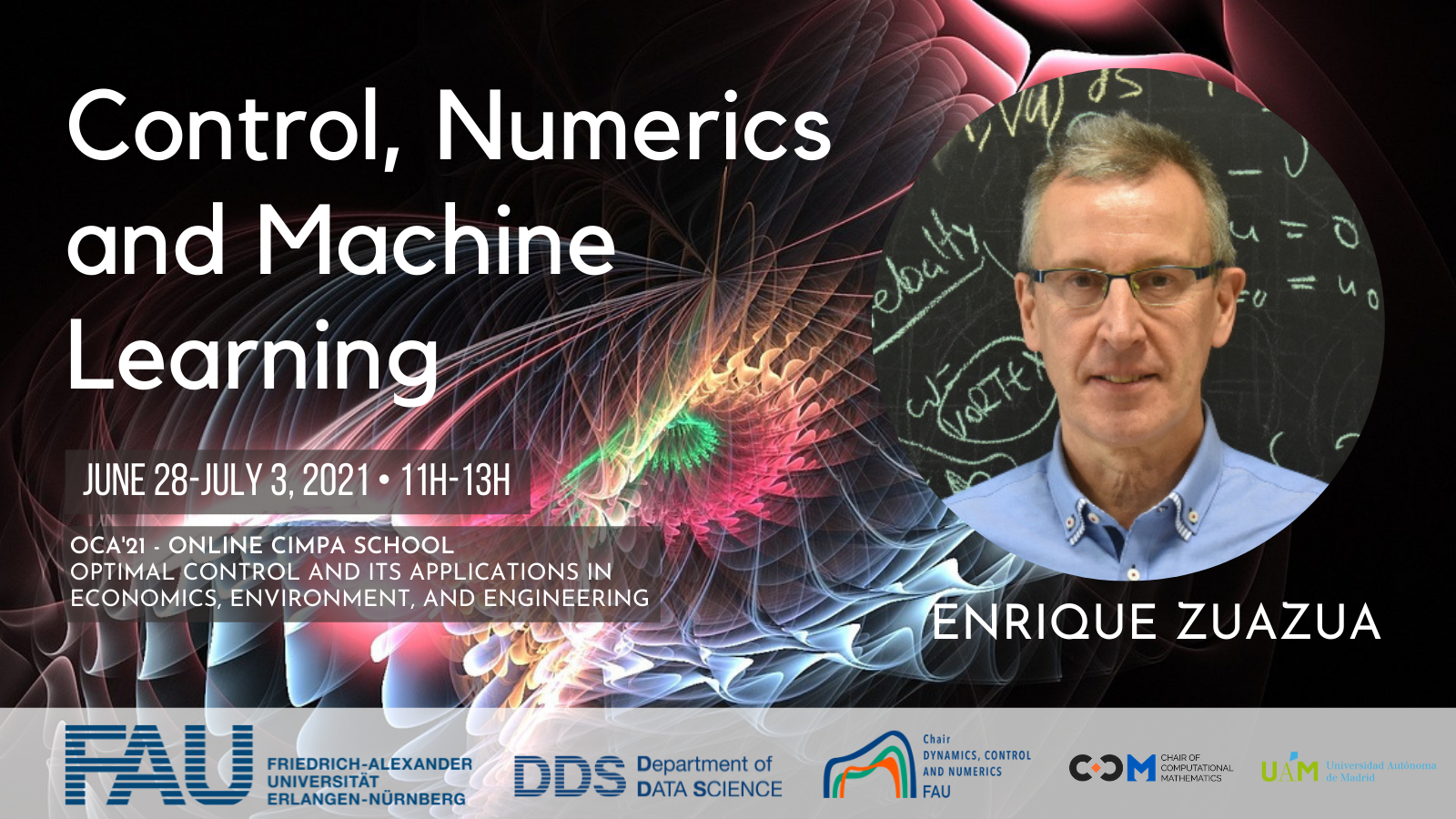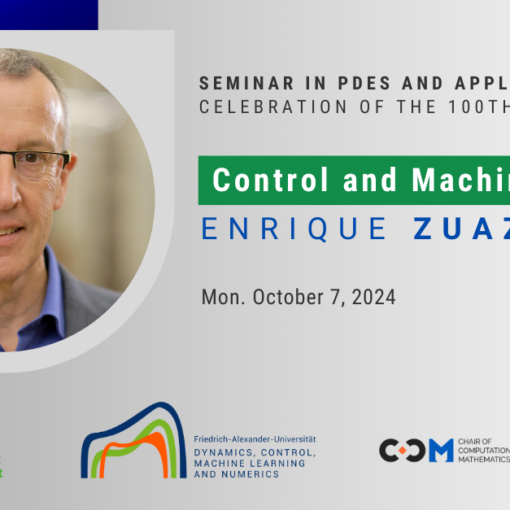Date: Tue. November 14, 2022
Organized by: FAU DCN-AvH, Chair for Dynamics, Control and Numerics – Alexander von Humboldt Professorship at FAU Erlangen-Nürnberg (Germany)
Title: Mini-workshop “Analysis, Numerics and Control”
11:30H
Title: Breaking the curse of dimensionality with Barron Spaces
Speaker: Antonio Álvarez López
Affiliation: Visiting PhD Student from UAM, Autonomous University of Madrid (Spain)
• Slides
Abstract.Approximating an unknown function with arbitrary precision is one of the main tasks in Supervised Learning. Nevertheless, the error and complexity bounds are usually dependent on the dimension of the ambient space, whose typical values on this type of problems are extremely large. In this context, the term “curse of dimensionality” refers to the common situation when these relationships are exponential, deteriorating the performance of the model when the dimension increases.
Therefore, it seems very important to be aware of the characteristics of the functions that a particular Neural Network model is able to approximate efficiently. I will briefly introduce a classical simple Deep Learning architecture, the two-layer neural networks, in order to present a class of functions that they are able to approximate in the sense that optimal direct and inverse approximation theorems hold. Those function spaces are named the Barron Spaces, and they allow us to shed some light on the possibilities of overcoming the dimensionality problem and gaining a deeper understanding of the capabilities of these models.
12:00H
Title: Geometric guidance strategies for terminal angle and time control problems
Speaker: Ziqi Wang
Affiliation: PhD Student at FAU DCN-AvH Chair for Dynamics, Control and Numerics – Alexander von Humboldt Professorship (Germany)
• Slides
Abstract. The recently developed advanced guidance laws aim to arrive at the final position with a specified angle or time for better effectiveness. However, aspects such as feasibility, robustness, and implementation complexity of the constrained guidance laws are currently significant issues that attract more interest in research. In this work, a two-stage ITAG law based on the geometric property of the circle involute is designed. The proposed technique is easy to implement, in that it does not involve model linearization, time-to-go estimation, and numerical optimization routine. Additionally, the achievable range of different constraints is analyzed considering practical issues such as initial launch angles, initial line-of-sight angles, and acceleration limits.
Previous FAU DCN-AvH Workshops:
- Mini-workshop: “Analysis, Numerics and Control” by Parada, Crin-Barat (November 11th, 2022)
- Mini-workshop: “Recent Advances in Analysis and Control” by Aceves, Paoli and Sarac (July 1st, 2022)
- Mini-workshop: “Recent Advances in Analysis and Control” by Simpore, Crin-Barat, Biccari (June 20th, 2022)
- Mini-Workshop “Calculus of Variations and Functional Inequalities” by König, Glaudo (May 25th, 2022)
- Mini-workshop: “Model Reduction and Control” by Peitz, Manzoni, Strazzullo (May 24th, 2022)
- Seminar Series: Deep Learning in Control by Heiland (January 17th, 2022)
- Mini-workshop: “Recent Advances in Analysis and Control” by Lazar, Zamorano, Lecaros (January 14th, 2022)
- Mini-workshop: “Recent Advances in Analysis and Control” by Ftouhi, Rodríguez, Song, Matabuena (October 1st, 2021)
- Mini-workshop: “Recent Advances in Analysis and Control” (II) by Sônego, Minh Binh Tran (May 21th, 2021)
- Mini-workshop: “Recent Advances in Analysis and Control” by Della Pietra, Wöhrer, Meinlschmidt (April 30th, 2021)
_
Don’t miss out our upcoming events: Subscribe to the FAU DCN-AvH newsletter!
Connect with us at:
